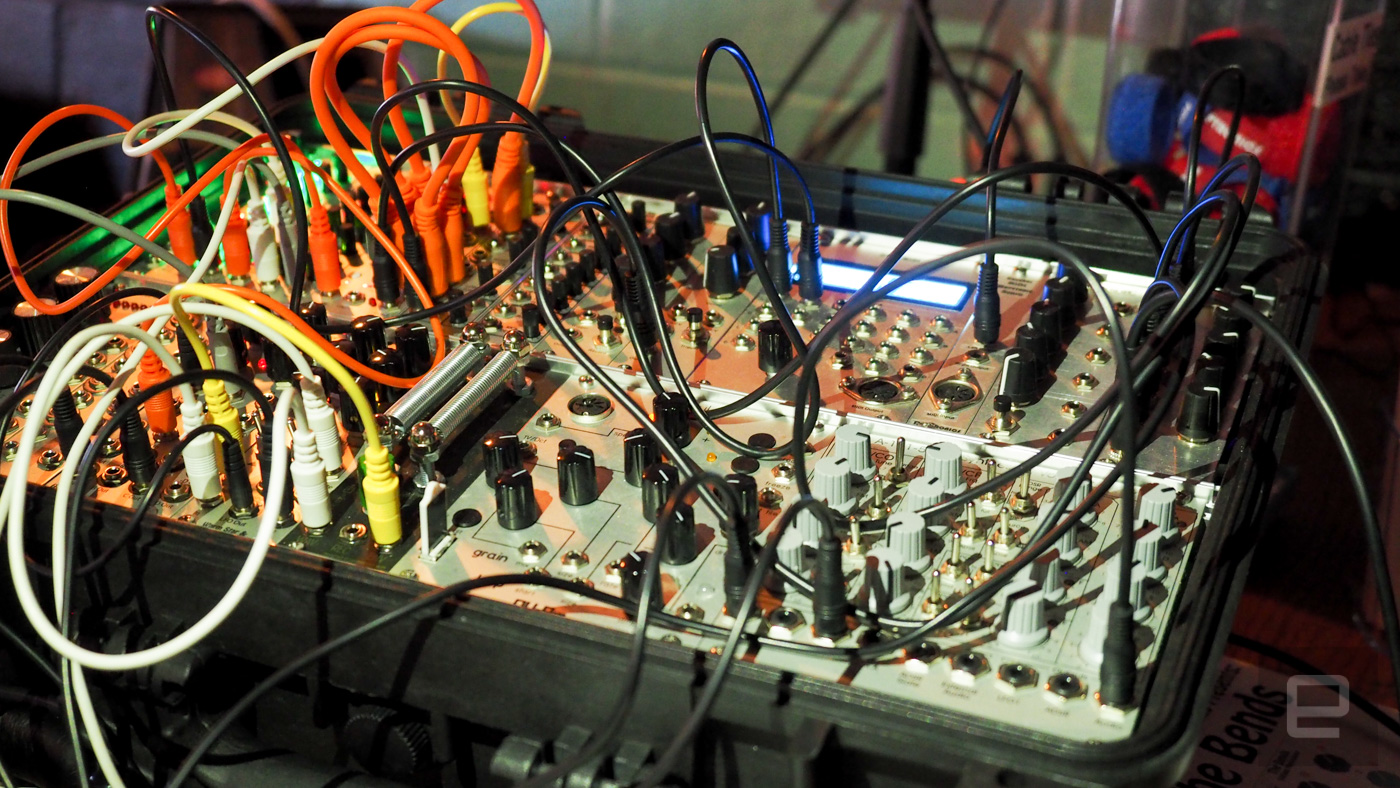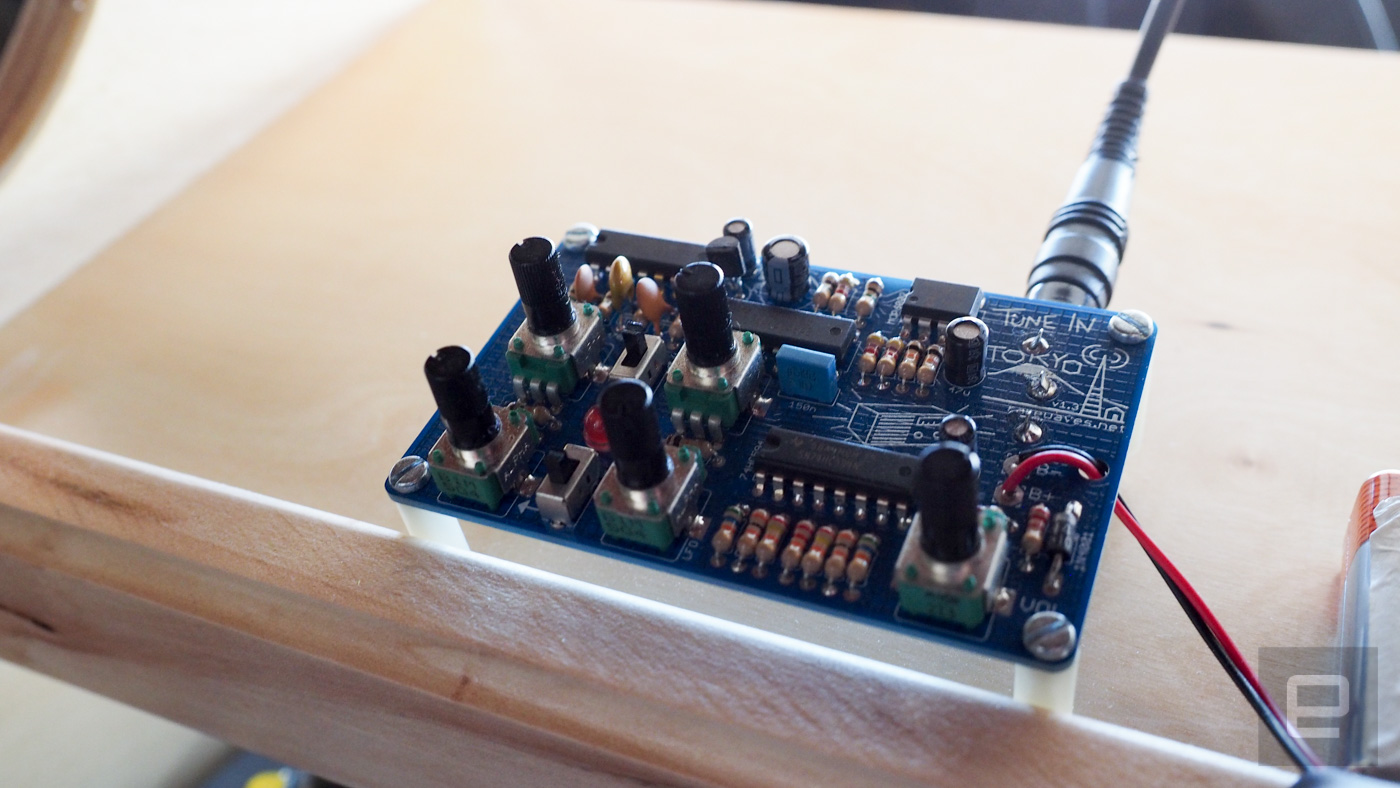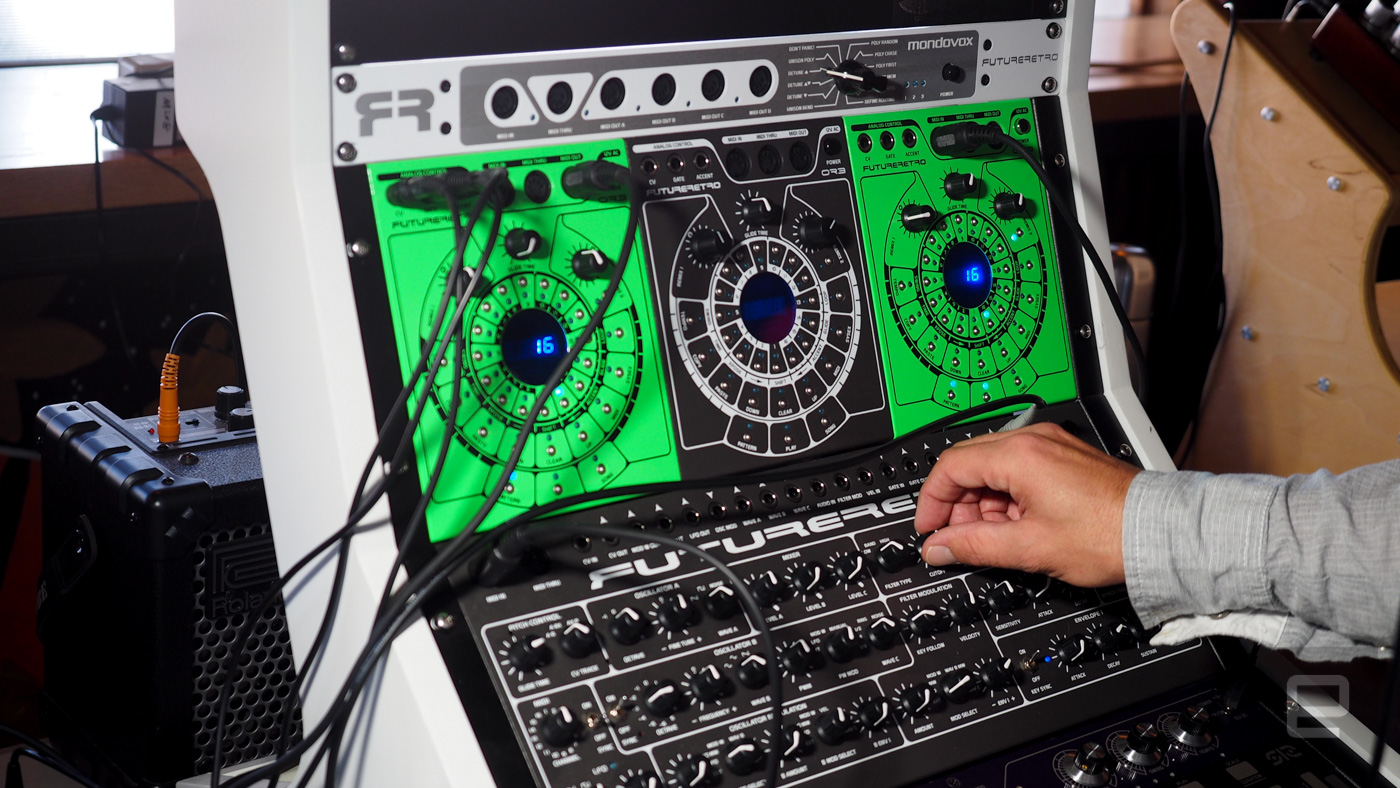The synth world is more than just turning knobs and plugging in wires — over the past two decades it’s exploded into a DIY community. Some of that has to do with the rise of the modular Eurorack format. The rack introduced a standard sizing format that musicians could use to mix and match different oscillators, filters and sequencers onto a cabinet to create completely unique synth configurations. The relatively low entry price for those modular instruments has found a booming market catered toward musicians looking for that perfect sound.

At Cheer Up Charlies — the venue for SXSW’s mini Moogfest — some of the main players in the modular synth market are showing off their latest creations. Mickey Delp of Delptronics had the company’s latest gear (including a cool spring-based synth) on show inside a portable EuroCase enclosure. Basically, it’s a suitcase of sound.
Eric Archer, design engineer of Rare Waves, was on-site with a more experimental approach. In addition to being the maker of the popular Grendel synth pedal, Rare Waves has created DIY packs for those interested in building their own tiny synths and light-sensing devices. For those wanting a plug-and-play solution to creating music, Archer also has a standalone tone generator that uses the visible light spectrum to create noise. It measures pulsing lights to create unique soundscapes that the operator can record or just listen to through the built-in speaker.

Jered Flickinger of Future Retro — who has been building synths since 1997 — was also here. After 20 years in the business, his products have evolved to include capacitive keyboard synths, an insane circular sequencer and soon a Transient drum module that’ll work with any Eurorack setup. Flickinger’s first creation, the Roland TB-303-inspired 777, was a hit. For Flickinger, having the artists he respects end up using the 777 in their own music was a dream come true.
While the three companies at Moogfest are building different types of synths, they were each happy to talk about the community and DIY aspect of the instrument. While Moog inspired all of them, they’ve taken what that company and others have introduced to the market and created something of their own. The synth community has become a large collective of tinkerers, musicians and people who really like turning knobs. Unlike other instruments such as a guitar or drum set, the barriers to creating a synth are only as steep as a person’s ambition. If you have the patience to learn a little bit about electronics and can wield a soldering gun without burning yourself, you can build your own modulating device.

Archer summed up how easy he thinks synth building is, assuring us that “if you can poke a wire through a hole and put some solder on it, you’re off to a good start.”
Click here to catch up on the latest news from SXSW 2017.
Update: An earlier version of this article incorrectly indicated that Moog Music booked the bands. Moogfest booked the entertainment.
(92)
